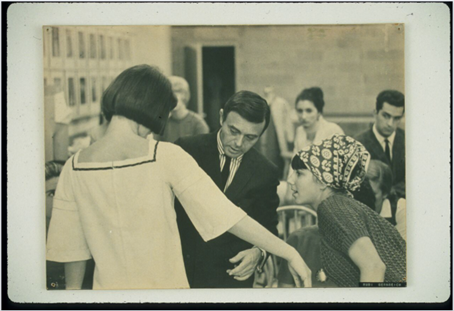The fashion landscape seems more politically charged than ever before, but as early as the 1950s, American fashion designer Rudi Gernreich– who famously said “Fashion will go out of fashion” – used clothes as a lens for social commentary and as statements on gender and sexuality.
Gernreich, who migrated to the U.S. in 1938 as a Jewish refugee, never shied away designing women’s garments that expressed avant-garde, often controversial ideas. Clothes for him weren’t frivolous, but instead held possibilities as instruments of social critique and even social change. Ultimately, for Gernreich, it came down to creating democratic, innovative garments that looked ever-forward, and that expanded the modern woman’s position and participation in the public sphere.
Gernreich’s start in the 1940s as a dancer and costume designer at the Lester Horton Modern Dance Troupe influenced his understanding of women’s anatomy. His stretchy, flexible garments were freed of haute couture’s boning, structures, and constraints, typically encumbrances to women’s movement. By the 1950s, Gernreich was designing his own creations, as well as sportswear and swimwear for other American brands.
The designer championed a futuristic, as well as androgynous aesthetic in his work, anticipating the gender-bending direction fashion design would take in years to come. Among his most famous styles were bold, color-clashing, art-inspired patterns and provocatively short shift dresses, and thongs for men and women.
But perhaps the most sensational garment Gernreich designed was the “monokini,” a topless swimsuit, a statement on liberating women from the tyranny of constrictive undergarments and conservative attitudes toward breasts.
In addition to introducing the No-Bra Bra, made of sheer-stretch fabric and without underwire or lining, Gernreich used transparent materials in his collections to naturally display the female form in public.
Gernreich earned prestigious awards including induction into the Fashion Hall of Fame by the Coty American Fashion Critics, and a listing on TIME magazine’s “All-TIME 100 Fashion Icons.”
Off the runway, Gernreich’s political motivations led him to helping found the Mattachine Society in 1950, an early American gay liberation movement.
Although Gernreich closed his company in 1968, he continued to design until 1981, always showing deep concern for the needs of the modern women while producing conceptual garments that challenged his view of what the future could be.



